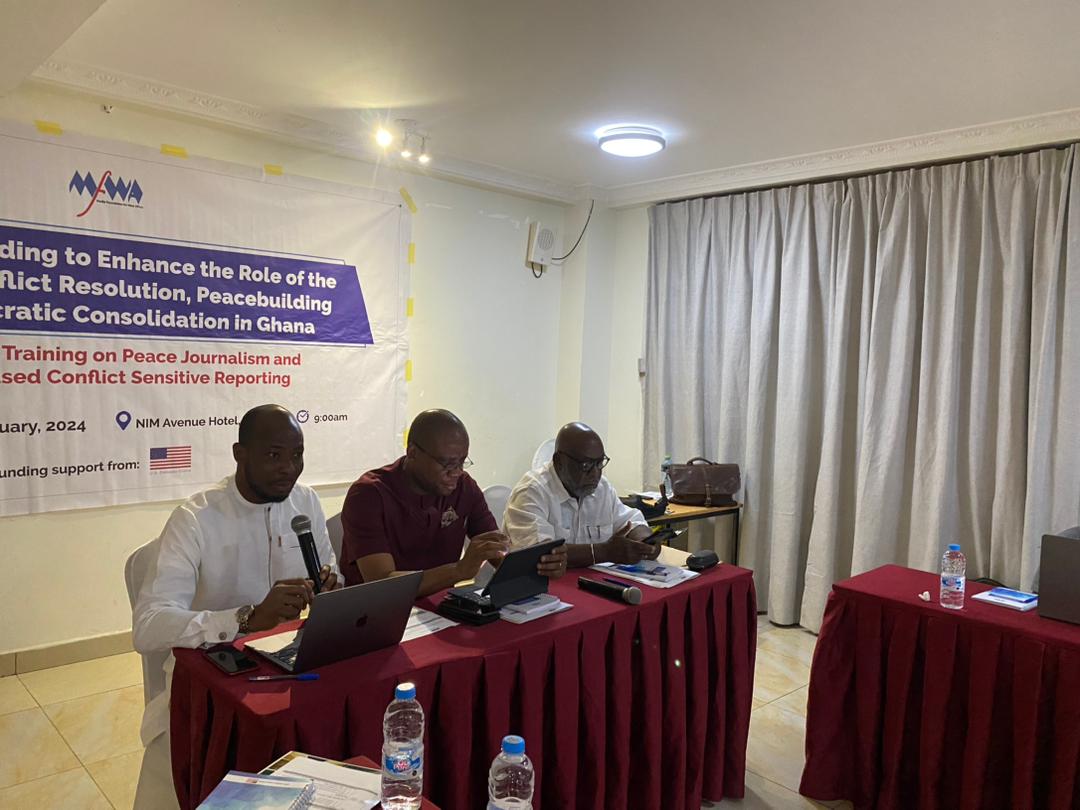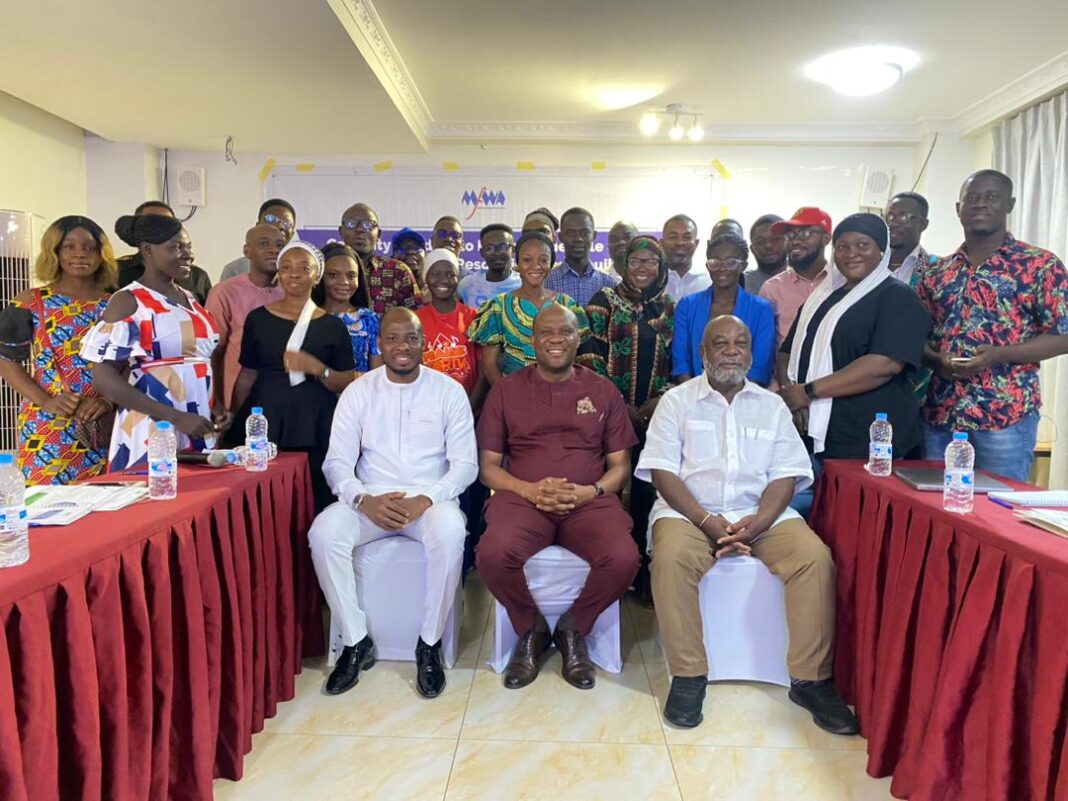On Wednesday, January 31, the Media Foundation for West Africa (MFWA) convened 25 journalists at the Nim Avenue Hotel in Tamale in the Northern region of Ghana.
The journalists had been selected from the Northern, Savannah and Bono East regions of Ghana. Made up of ten females and 15 males, they had been brought together for a two-day capacity-building workshop on peace journalism and fact-based conflict-sensitive reporting.
Ghana is heading to the polls in December when citizens will elect a new president and 275 parliaments, the ninth time since the country returned to the Fourth Republic. Elections and their associated political tensions and violence are some of the key stressors of peace in the country that have enjoyed relative stability in the West Africa sub-region, where democracy is in recession. However, in the context of simmering internal communal conflicts, unemployment and rising radicalism among the youth, a decisive intervention needs to be made to safeguard and consolidate Ghana’s democracy ahead of the polls.
“The media’s role in influencing peace is critical and cannot be overstated,” Dr Kojo Impraim, MFWA’s Director for the Media for Peace and Sustainable Development Programme, explained at the opening of the workshop. “Through agenda setting and public education, the media can de-escalate conflict, build bridges, foster peaceful dialogues and counter-narratives of violent extremism. However, the media has limited knowledge and capacity to play this role. This is why this workshop is extremely important. We are going to hold a number of these capacity-building interventions.”
The workshop is part of the MFWA’s project on Enhancing the Media’s Role in Conflict Resolution, Peacebuilding and Democratic Consolidation in Ghana funded by the US Embassy in Ghana. The project will build the capacity of 100 journalists from 50 media houses. The beneficiary journalists will be selected from seven target regions, namely the Northern, Savannah, North East, Bono East, Upper East, Upper West and Volta regions.
Dr Impraim explained that the workshop in Tamale was the first and official opening of a series of training workshops that will be rolled out. He added that the project will recruit five fact-checkers based in the five northern regions of Ghana to contribute to the work of MFWA’s fact-checking outlet, Fact-Check Ghana, in debunking mis/disinformation and countering narratives of violent extremism especially in the target regions.

The training workshop will expose the journalists to both practical, theory and group presentations on approaches to peace journalism, fact-based reporting and understanding the role of the media in building community resilience. The capacity of the beneficiary journalists will also be built on understanding the drivers of insecurity, violent extremism and community radicalism, fact-checking and countering mis/disinformation and polarising narratives.
“This is not just a training workshop. All participants are expected to produce 100 accurate fact-check reports. Thus, on average, every beneficiary will be expected to produce one fact-check report,” Dr Impraim said.
The Press Attache to the US Embassy in Ghana, Kevin Brosnahan, who joined the official opening of the training workshop online explained that the project was part of the US government’s strategy to prevent conflict and promote stability and coastal West Africa.
“We know that security forces alone cannot provide stability and prevent all violence. They are an important part but civil society is just as important. And for us, civil society includes professional journalists who are well-trained in conflict-sensitive reporting to make sure the public understands the root of conflicts, but also understand how they can help address it in their communities,” he said.
The Press Attache added that they are working with the MFWA and other partners to equip the media with the skills and tools to report on conflict without making it worse.
One of the implementing partners on the project is the National Peace Council (NPC) of Ghana. A member of the board of the Northern Regional National Peace Council of Ghana, Bishop Prof. Albert Luguterah, who was present at the official opening praised the partnership between the media and the NPC as one that would help maintain the peace in northern Ghana.
“Peacebuilding begins with prevention. Early warning signs are crucial for sustaining peace. Protecting and sustaining peace is multi-faceted,” Bishop Prof. Luguterah stressed the role of the media in conflict prevention.
Aside from the two-day training workshop in Tamale that ends on February 1, the project will host three more capacity-building workshops including one in the Upper West region of Ghana.





